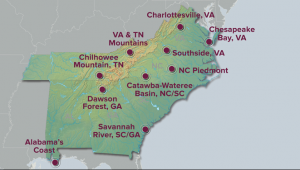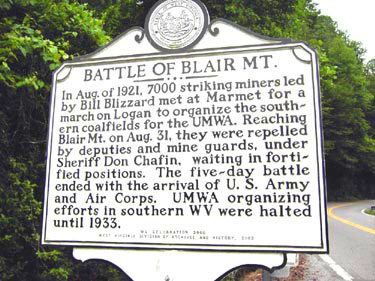Why does the coal industry need to make things up? Because they are on the wrong side of the facts, they are on the wrong side of public opinion, and they are on the wrong side of history. Fortunately, they don’t have a defensible case to continue doing mountaintop removal here in Tennessee. Unfortunately, too many legislators are easily swayed by their misinformation.
The text of the legislation clearly states:
(2) Except as provided in subdivision (3) under no circumstances shall the commissioner issue or renew a permit, certification, or variance that would allow surface coal mining operations to alter or disturb any ridgeline that is above two thousand feet (2,000′) elevation above sea level, such elevation being determined using the most current edition of the United States forest service’s publication, Ecological Subregions of the United States. This subdivision (2) does not prohibit any otherwise allowable surface coal mining above two thousand feet (2,000′) elevation above sea level that does not alter or disturb a ridgeline.
The rest of the bill is mostly exemptions and things which the language will not effect. Who are the legislators going to side with? A hired coal lobbyist, who is making up things about the Tennessee Scenic Vistas Protection Act, or the majority of the Appalachian and American people who are sick of seeing are mountains torn down!
We’ll know tomorrow morning (2/29) at 11:30eastern/10:30Central. If you can, take 5 minutes and call the Committee members this morning. Tell them you support the Scenic Vistas Protection Act and want them to vote YES.
Senate Energy and Environment Committee
Senator Steve Southerland, Chair – Phone (615) 741-3851
Senator Jack Johnson, Vice-Chair – Phone (615) 741-2495
Senator Jim Summerville, Secretary – Phone (615) 741-4499
Senator Mike Bell – Phone (615) 741-1946
Senator Mike Faulk – Phone (615) 741-2061
Senator Kerry Roberts – Phone (615) 741-1999











 It can seem like a very long way from the ridges, hollows, and creeks of our part of Appalachians to the austere headquarters of the State Corporation Commission ( or SCC) in Richmond. The SCC regulates electric utilities in Virginia, however, and as removed as its financial number-crunching can seem from the bucolic Appalachians, the decisions made there have profound impacts on these mountains – and on our health and natural heritage in general.
It can seem like a very long way from the ridges, hollows, and creeks of our part of Appalachians to the austere headquarters of the State Corporation Commission ( or SCC) in Richmond. The SCC regulates electric utilities in Virginia, however, and as removed as its financial number-crunching can seem from the bucolic Appalachians, the decisions made there have profound impacts on these mountains – and on our health and natural heritage in general. Making the case for efficiency before the SCC can advance technologies that save consumers money while also seriously reducing our reliance on destructive energy sources. Efficiency – which involves improving HVAC systems, building envelopes, lighting systems, etc. – puts a lot more people to work than any other way of meeting electricity demand, at a fraction of the cost. A 2009 analysis by McKinsey Global Energy and Markets found that the Southeast has the largest untapped cost-effective (i.e., cheaper than other sources of energy) energy efficiency resource of any region of the country. We’re making real progress when it comes to advancing efficiency in Virginia, but we have a long way to go before efficiency is treated as an equal alongside conventional energy sources. The SCC is currently accepting written public comments related to efficiency on Dominion’s grid and there is a hearing in Richmond on March 6. Citizen engagement before the SCC can make a difference, because it’s our interests the Commission is charged with protecting! To get involved and stand up for efficiency in Virginia,
Making the case for efficiency before the SCC can advance technologies that save consumers money while also seriously reducing our reliance on destructive energy sources. Efficiency – which involves improving HVAC systems, building envelopes, lighting systems, etc. – puts a lot more people to work than any other way of meeting electricity demand, at a fraction of the cost. A 2009 analysis by McKinsey Global Energy and Markets found that the Southeast has the largest untapped cost-effective (i.e., cheaper than other sources of energy) energy efficiency resource of any region of the country. We’re making real progress when it comes to advancing efficiency in Virginia, but we have a long way to go before efficiency is treated as an equal alongside conventional energy sources. The SCC is currently accepting written public comments related to efficiency on Dominion’s grid and there is a hearing in Richmond on March 6. Citizen engagement before the SCC can make a difference, because it’s our interests the Commission is charged with protecting! To get involved and stand up for efficiency in Virginia, 